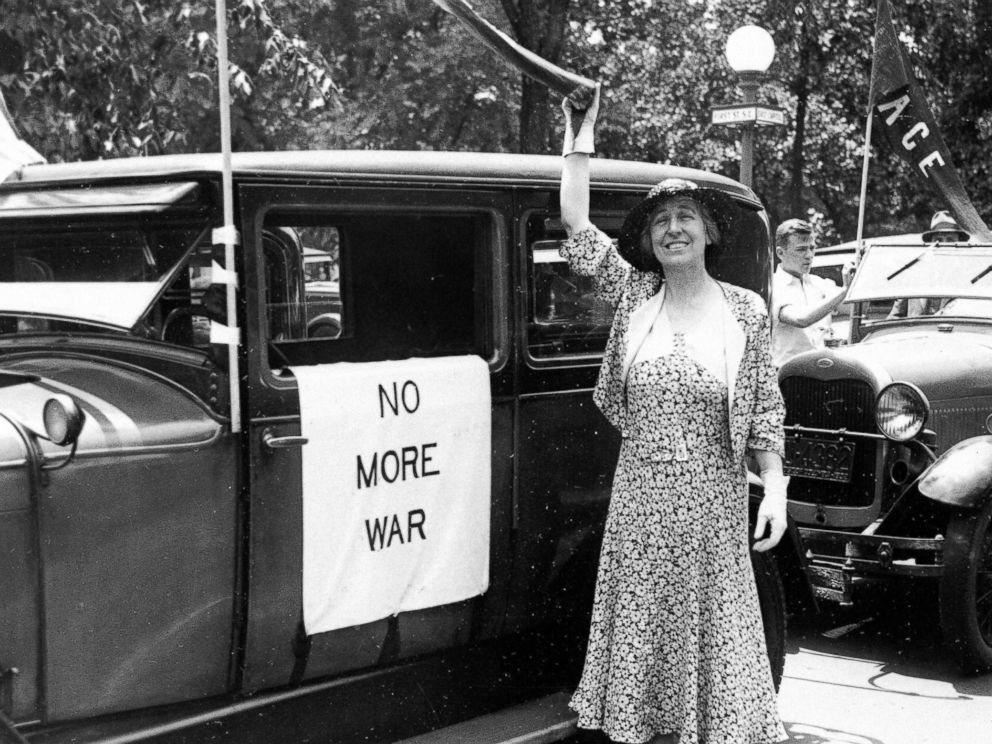Hillary Clinton's Nomination Coincides With Another Female Politician's Historic Victory
Her nomination comes 100 years after the first woman was elected to Congress.
— -- Hillary Clinton’s shattering this week of the highest, hardest glass ceiling in politics comes almost a century after another female politician celebrated a historic victory.
In 1916, Montanan Jeannette Rankin became the first woman elected to Congress. Rankin, a Republican, found her calling in the women's suffrage movement before heading to Washington.
Her feat, in some ways, was even more impressive than Clinton’s becoming the first woman to top a major presidential ticket considering it came at a time when many women didn't even have the right to vote.
Rankin, who was born in 1880, ultimately served two terms in the House, one between 1917 and 1919 and one between 1941 and 1943. In between, she continued her work as a social activist.
Along with being the first women elected to Congress, she is also known as the only House member to vote against going to war with Japan after the 1941 attack on Pearl Harbor.

Clinton all but officially secured the Democratic presidential nomination Tuesday night after victories in the California, New Jersey and New Mexico primaries. After her win, Clinton pledged to build on progress made by women pioneers like the 19th century leaders at the Seneca Falls Convention, who helped fight for their right to vote more than 95 years ago.
"Tonight caps an amazing journey, a long, long journey," Clinton said in her victory remarks. "We all owe so much to those who came before and tonight belongs to all of you."
It took women pioneers like Rankin, fearless and never backing down, to make Clinton's grueling journey possible, shattering the glass ceiling that in 2008 she said was left with "18 million cracks,” which was a nod to the number of votes she received in her failed primary contest against then-Sen. Barack Obama of Illinois.
Clinton’s victory this week has brought Rankin’s name and those of other female pioneers back into the news.
Rankin, who died in 1973 at the age of 92, started out as a rancher and school teacher before her time in Congress. She was a social activist and life-long pacifist whose congressional career is highlighted by her opposition to allowing the United States to enter both World Wars.
In 1917, she joined some male colleagues in voting against the United States’ joining the war in Europe.
Her stand against entering World War II was lonelier.
On Dec. 8, 1941, a day after the attack on Pearl Harbor, she cast the single congressional vote against declaring war on Japan, which passed on a 388 to 1 vote.
Rankin voted "no" to what The Associated Press described as "a chorus of hisses and boos."
"As a woman I can’t go to war,” Rankin said, “and I refuse to send anyone else.”




